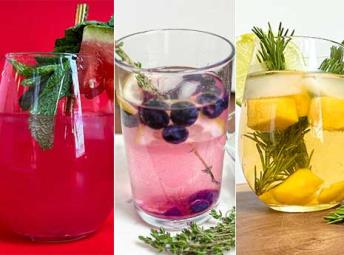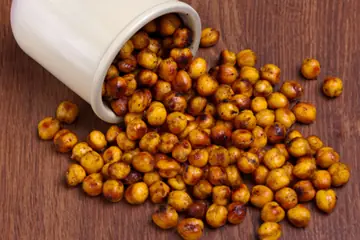The drawbacks: This diet can be high in saturated fat. When entire food groups (dairy and grains) are eliminated, important nutrients are also eliminated and you run the risk, if followed long-term, of developing nutrient deficiencies.
The skinny: A nutrition plan that includes whole, unprocessed foods is the basis of most healthy diets. But so are whole grains, low-fat dairy and legumes.
More: Why Are Carbs Important?
Detox Diets
The limitations: From 24- to 48-hour cleanses to 21-day detoxes, every year there's a new detox diet trend. These diets can include juice fasts, cleansing products, raw foods and colonics.
The drawbacks: While these diets are popular, they are not scientifically proven. There is little evidence that detox diets actually remove toxins from the body—this is the job of our kidneys and liver. These organs filter and eliminate most ingested toxins effectively. Detox diets are also usually very low in protein and other important vitamins and minerals. Devotees risk suffering from extreme fatigue, cramping, bloating, nausea and vomiting, electrolyte imbalances and dehydration when following some of these detox diets.
More: Electrolytes 101
The skinny: The benefits may actually come from avoiding highly processed foods that have solid fats and added sugars. So why not just eat a well-balanced diet that focuses on fruits and vegetables, whole grains and lean proteins, and limit processed foods?
More: 10 Foods You're Addicted to the Most
Blood-Type Diet
The limitations: The blood-type diet is based on the theory that you should eat certain foods and avoid others based on your blood type: A, B, AB or O. What you can eat and how you exercise while on this diet depends, essentially, on who you are.
It is recommended that blood type O eat lean meats, poultry and fish, restrict grains, breads and legumes, and enjoy vigorous exercise. Blood type A should focus on a vegetarian diet that contains soy proteins, grains and organic vegetables, and get gentle exercise. Blood type B can enjoy low-fat dairy, meat and produce but, among other things, should avoid wheat, corn and lentils; moderate exercise is recommended. Blood type AB should avoid chicken, beef and pork but enjoy seafood, tofu, dairy and most produce; calming exercise is suggested.
- 2
- of
- 3
About the Author








Discuss This Article